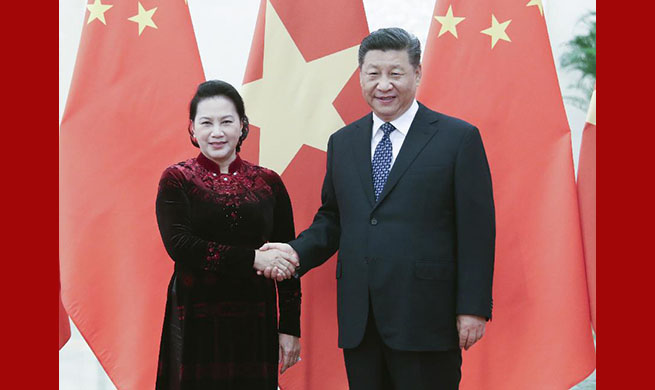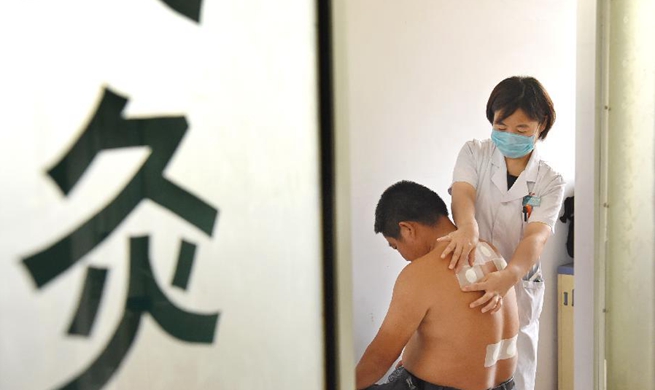by Alessandra Cardone
ROME, July 12 (Xinhua) -- The Italian economy was expected to stagnate in 2019 and to grow below the average projected for the euro zone in the following two years, the Bank of Italy's governor said on Friday.
Ignazio Visco gave such remarks in Milan, while addressing the annual meeting of the Italian Banking Association (ABI), which celebrated the 100th anniversary of its foundation.
"Despite the moderate improvement in the first quarter of this year, economic activity in Italy stagnates, being affected especially by a loss of strength in the industrial cycle," Visco told the assembly in a speech later published by the central bank.
"According to our surveys, companies are expecting a slowdown in demand in the next months, and a very modest growth in investment along the year overall," he added.
The governor explained that, according to the Bank of Italy's projection, "the growth of gross domestic product (GDP) is equal to 0.1 percent in 2019, and to a little less that 1 percent on average in the following two-year period."
Visco recalled that -- according to estimates by the European Union (EU) Commission in early June -- the output of the eurozone should grow by 1.2 percent and 1.4 percent in 2019 and in 2020-2021, respectively.
Among the reasons making the Italian economy -- the third largest in the eurozone -- lag behind its major EU partners this year and the next two were the risks connected to both an uncertain global context and to a weak domestic demand.
"Household and business confidence might be affected by the uncertainties over the budget policy, which have been dispelled for the current year but are still true for the next one," said Visco.
The 0.1 percent growth projection for the current year provided by the central governor slightly diverged from the 0.2 percent officially estimated by the Italian government.
Addressing the assembly later during the meeting, Economy and Finance Minister Giovanni Tria confirmed the government's official estimate, sounding slightly more positive in terms of the country's growth perspectives.
"Considering the difficult international context and the signals of strong reversal in the (economic) cycle that emerged in 2018, the Italian economy's trend since the beginning of the year has overall been satisfactory, because it has showed signs of stabilization," Tria explained.
"We believe the growth estimate... for 2019 -- 0.2 percent for the Real GDP growth and 1.2 percent for the Nominal GDP growth -- remains valid," the minister said.
"Yet, downside risks remain, also in connection with the trends of some European major partners that might as well affect the year 2020, for which the real growth forecast is currently at 0.8 percent," Tria specified.
Addressing the annual assembly, ABI president Antonio Patuelli warned the country should stick to a path of public debt reduction.
"We (the ABI) do not resign ourselves to an Italian economy that grows too little -- when growing at all -- while the public debt keeps increasing," he stressed.
"And we do not resign ourselves neither to a high spread, which weighs on Italy's productive factors," he added.
Patuelli referred to the yield differential between Italian and German 10-year benchmark bonds, which provides a key indicator of the investors' confidence in the solidity of the Italian economy.
The higher the spread, the lower the market confidence, and the more Italy would pay in order to borrow money.
At 132.2 percent of GDP in 2018, according to official data by the Economy and Finance Ministry, Italy's debt is the second highest in Europe after that of Greece.
President Sergio Mattarella and Prime Minister Giuseppe Conte also attended ABI's 100th annual meeting, which was organized in Italy's major financial hub -- Milan -- where the association was founded in 1919.













